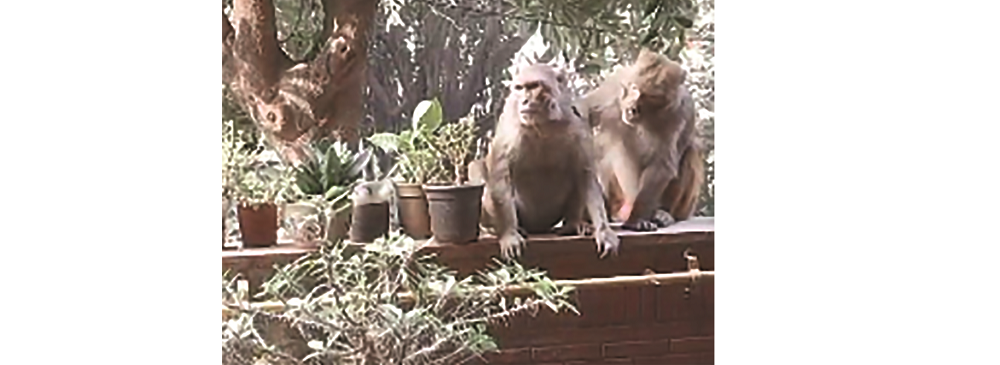In a bizarre incident, a resident of neighbouring Sector 41 shared their amusing experience with a mischievous monkey that had made their home a regular visit. The monkey would enter the house, head straight to the dining room, and pick up bananas from the fruit tray. However, when it didn’t find its favourite fruit one day, it ransacked the kitchen until it found peanuts. This incident may seem humorous, but it highlights the growing concern of simian nuisance in residential areas. As urbanization continues to encroach on natural habitats, monkeys and other wildlife are venturing into human settlements in search of food and shelter. The presence of monkeys in residential areas can have serious consequences, including property damage, food theft, safety risks, and health risks.
Monkeys can cause significant damage to property, including buildings, cars, and gardens. They are attracted to food, and can raid kitchens, gardens, and trash cans, leading to financial losses and health risks. Moreover, monkeys can be aggressive, especially when they feel threatened or when they are protecting their young. This can lead to physical attacks on residents, especially children and the elderly. Furthermore, monkeys can carry diseases such as rabies, hepatitis, and tuberculosis, which can be transmitted to humans through bites, scratches, or contact with contaminated feaces.
The expansion of urban areas into natural habitats is forcing monkeys and other wildlife to venture into human settlements. The destruction of natural habitats is reducing the availability of food and shelter for monkeys, leading them to seek alternative sources in residential areas. Additionally, the presence of food sources, such as garbage and pet food, in residential areas is attracting monkeys and other wildlife. To mitigate the problem of simian nuisance in residential areas, residents, authorities, and wildlife experts must work together to implement effective solutions. Proper disposal of waste and securing of garbage cans can reduce the attractiveness of residential areas to monkeys. Installing monkey-proof screens, netting, and other deterrents can prevent monkeys from entering homes and gardens. Humanely relocating and rehabilitating monkeys can help reduce the population in residential areas and promote coexistence with wildlife. Raising awareness among residents about the importance of coexisting with wildlife and taking preventive measures can help reduce conflicts and promote a safer, more harmonious environment.
Popular Stories
How To Revive Your Rainwater Harvesting System
The Water Couple’s Journey: From Cleaning Tanks to Complete Water Solutions!
Locals Felling Trees Near Sec A Pkt C
Winning Has Become a Habit for Divya
Is Green Park Heading Towards A Slum
Haphazard Parking, Narrow Walking Space In M Block Market
Recent Stories from Nearby
- Elections at Silver Oaks April 5, 2025
- Silver Oaks Rangotsav: A Vibrant Celebration of Holi April 5, 2025
- Sarvam Shakti: A Decade of Empowerment and Grace April 5, 2025
- Turning Waste into a Valuable Resource April 5, 2025
- Stray Dogs Menace & Management, A Block Extension April 5, 2025








